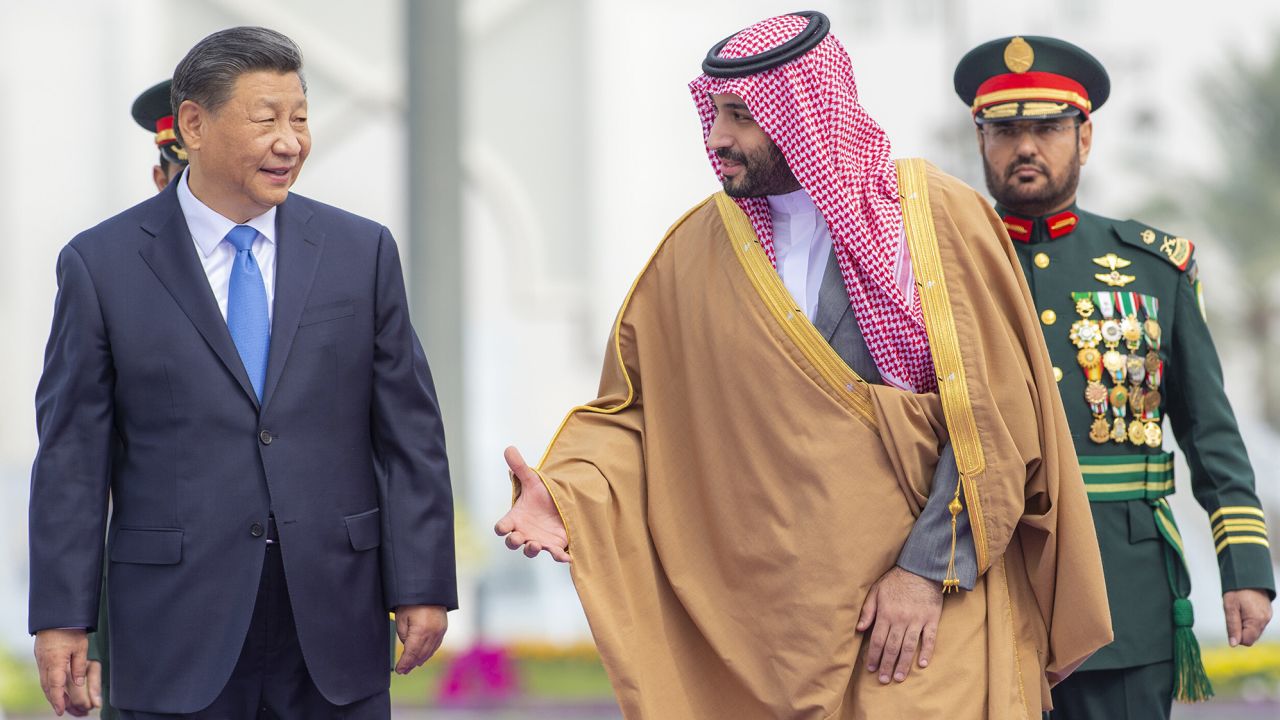Navigating The Chinese Market: Case Studies Of BMW And Porsche

Table of Contents
BMW's Approach to the Chinese Market
BMW's success in China is a testament to its adaptable and customer-centric approach. Their strategy highlights the importance of localization, robust service, and effective digital engagement within the Chinese automotive market.
Localization and Customization
BMW understood that a one-size-fits-all approach wouldn't work in the diverse Chinese market. They adapted their models and marketing strategies to resonate with local preferences.
- Extended Wheelbases: Many BMW models offered in China feature extended wheelbases, catering to the preference for spacious rear seating.
- Unique Trim Levels: Specific trim levels and packages are tailored to Chinese tastes, incorporating features and aesthetics not found in other markets.
- Local Design Collaborations: BMW has collaborated with Chinese artists and designers, incorporating local design elements into their vehicles and marketing campaigns, fostering a sense of connection with the local culture.
These localization efforts have significantly boosted BMW's sales figures in China, making it one of their most important markets globally.
Strong Dealer Network and After-Sales Service
A robust dealer network is crucial for success in the Chinese market. BMW invested heavily in building a widespread and reliable network across the country.
- Extensive Reach: BMW dealerships are strategically located across major cities and even smaller towns, ensuring accessibility for customers.
- Exceptional Service: BMW emphasizes providing exceptional after-sales service, including maintenance, repairs, and parts availability, building trust and customer loyalty. This is particularly important in a market where reputation is paramount.
- Tailored Service Initiatives: BMW has introduced several unique service initiatives catering to the specific needs and preferences of Chinese customers. These may include personalized concierge services or extended warranty options.
A strong service network is critical for maintaining brand reputation and fostering long-term customer relationships within the demanding Chinese market.
Digital Marketing and Engagement
BMW effectively leveraged digital marketing channels to connect with Chinese consumers, understanding the importance of online engagement in this digitally savvy market.
- WeChat and Weibo Dominance: BMW actively utilizes popular social media platforms like WeChat and Weibo to engage directly with potential customers.
- Targeted Digital Campaigns: They launched several successful digital campaigns tailored to the unique demographics and preferences of various Chinese consumer segments.
- Personalized Digital Experiences: BMW invested in creating personalized digital experiences, offering customized content and interactions to enhance customer engagement.
This strong digital presence is crucial for reaching and influencing the tech-savvy Chinese consumer base and driving sales within this competitive market.
Porsche's Strategy in the Chinese Market
Porsche's strategy focused on maintaining brand exclusivity while adapting to the evolving Chinese automotive landscape. Their approach highlights the power of experiential marketing and a forward-thinking approach to technological changes.
Exclusivity and Brand Prestige
Porsche strategically maintained its image of exclusivity and luxury within the Chinese market, which resonated powerfully with high-net-worth individuals.
- Premium Pricing: Porsche maintains a premium pricing strategy, reinforcing its image as a luxury brand.
- Targeted Models: Specific Porsche models, such as the Cayenne and Macan SUVs, have proven particularly successful in China due to their appeal to a wider range of consumers.
- Brand Heritage: Porsche effectively leveraged its strong brand heritage and racing legacy to resonate with Chinese consumers.
This focus on exclusivity helped solidify Porsche's position as a desirable luxury brand within the Chinese market.
Focus on Experiential Marketing
Porsche invested significantly in creating unique and memorable brand experiences for its Chinese customers.
- Driving Events: Porsche organizes exclusive driving events and experiences, allowing potential buyers to experience the performance and handling of their vehicles firsthand.
- Exclusive Partnerships: Porsche has collaborated with high-end lifestyle brands and luxury events to further enhance its brand image and reach.
- Brand Ambassadors: Porsche strategically utilizes brand ambassadors to strengthen their brand image and connect with the aspirational desires of consumers.
These experiential marketing initiatives helped forge strong brand loyalty and solidify Porsche's image as a premium luxury brand.
Adapting to the Changing Chinese Automotive Landscape
Porsche recognized the growing importance of electric vehicles (EVs) in China and proactively adapted its strategy accordingly.
- EV Model Introduction: Porsche has introduced and aggressively marketed its electric models, such as the Taycan, in the Chinese market.
- Infrastructure Partnerships: They are actively engaging with Chinese EV infrastructure companies to ensure a seamless charging experience for their electric vehicle owners.
- Future-Forward Strategy: Porsche is continually analyzing the evolving Chinese automotive landscape and adapting its strategies to maintain its competitive edge in this rapidly changing market.
This proactive approach to adapting to market changes ensures Porsche remains relevant and competitive within this dynamic environment.
Conclusion
This article explored the successful strategies of BMW and Porsche in navigating the complexities of the Chinese market. Both companies demonstrated the importance of localization, strong customer service, effective digital marketing, and adapting to evolving consumer preferences. Success in the Chinese market requires a nuanced understanding of consumer behavior, cultural sensitivities, and a commitment to long-term investment. Learning from these case studies is crucial for any business considering entering or expanding within the Chinese market. Understanding the specific approaches of BMW and Porsche, and applying similar principles of adaptation and customer focus, can greatly increase the chances of success in this dynamic and lucrative market. Start planning your entry into the Chinese market today!

Featured Posts
-
 Us China Trade Exclusive Look At Xi Jinpings Security Envoys Role
May 11, 2025
Us China Trade Exclusive Look At Xi Jinpings Security Envoys Role
May 11, 2025 -
 Understanding The Importance Of Middle Managers In Todays Workplace
May 11, 2025
Understanding The Importance Of Middle Managers In Todays Workplace
May 11, 2025 -
 Selena Gomez And Benny Blanco Baby Plans Revealed
May 11, 2025
Selena Gomez And Benny Blanco Baby Plans Revealed
May 11, 2025 -
 Werder Bremen Cruises Past Struggling Holstein Kiel
May 11, 2025
Werder Bremen Cruises Past Struggling Holstein Kiel
May 11, 2025 -
 Understanding Debbie Elliotts Impact And Contributions
May 11, 2025
Understanding Debbie Elliotts Impact And Contributions
May 11, 2025
